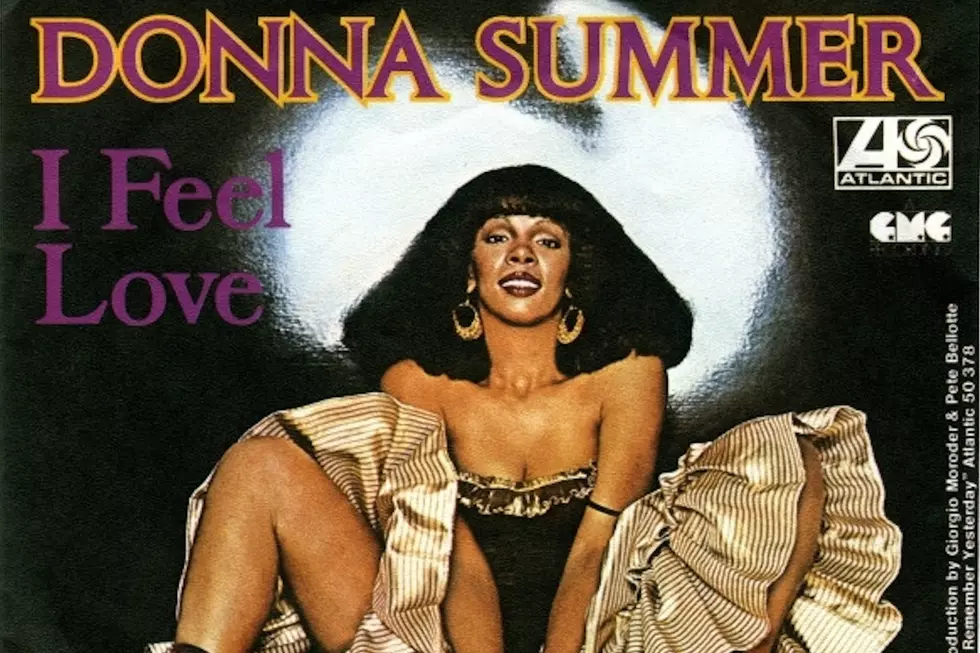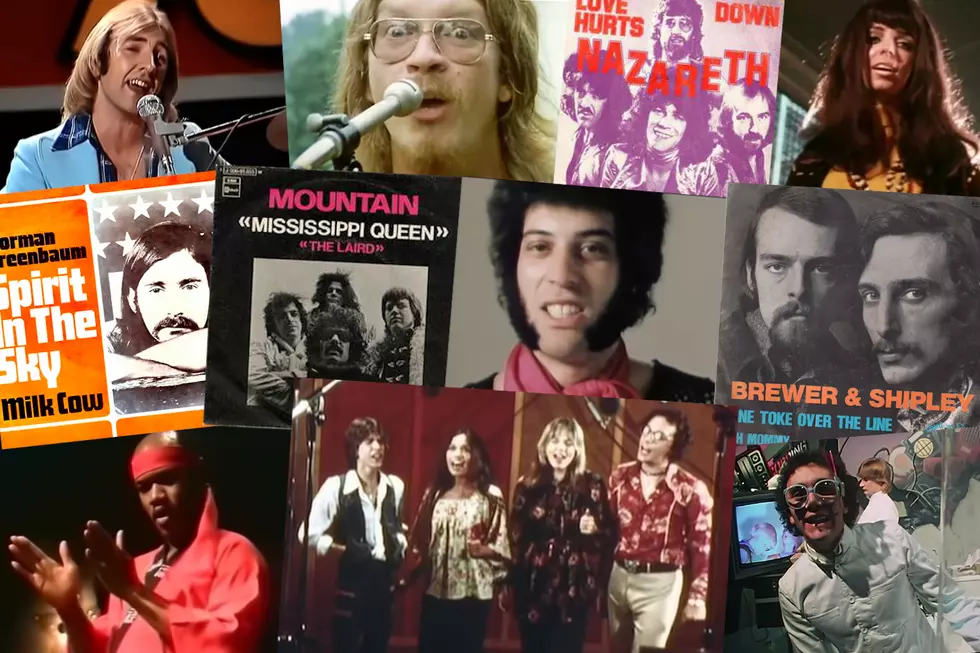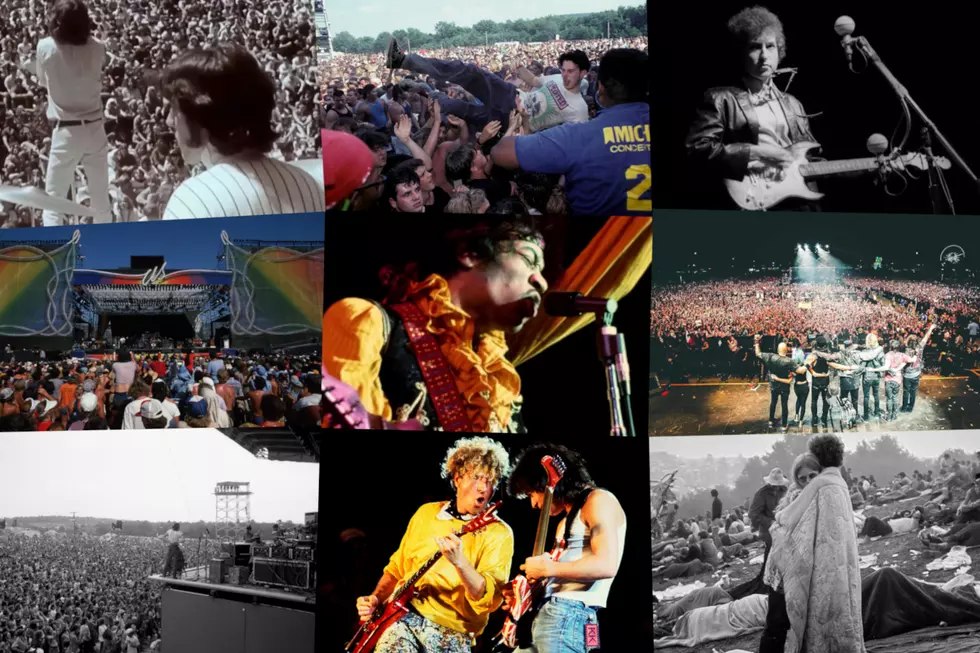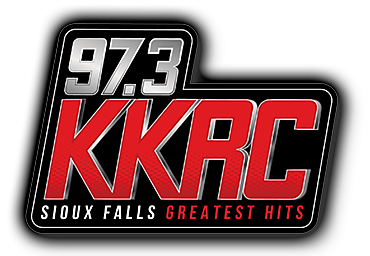
How Donna Summer Created the Sound of the Future on ‘I Feel Love’
Donna Summer's fifth studio album, I Remember Yesterday, was designed to take listeners on a journey through musical years gone by. The LP's closing track, however, was intended to introduce the future.
Like Summer's previous three albums, I Remember Yesterday was conceptual, this time chronicling the evolution of popular music through each decade. She was still incorporating a modern disco sound, while on side one of the LP, "I Remember Yesterday" represented the '40s, "Love's Unkind" the '50s and "Back in Love Again" the '60s. Then the flipside of the record kicked it up a notch, with "I Feel Love" arriving at the very end of the LP. Summer had been dubbed the "Queen of Disco" for her immense success in the genre — she had a Top 40 hit every single year between 1975 and 1984 — but she wasn't about to get too comfortable doing the same old thing.
There was a lot to compete with as "I Feel Love" arrived as a single on July 2, 1977: The Clash, the Sex Pistols and Elvis Costello released debut albums that year as the second wave of punk rock began to sweep the scene, while landmark albums like Fleetwood Mac's Rumours and Pink Floyd's Animals dominated the charts. But Summer was after a different sound.
To create this futuristic sound, "I Feel Love" co-producer and co-writer Giorgio Moroder employed electronic tools in a very forward-looking, all-encompassing way.
"I did it by only using synthesizers, because I thought it was the instrument that would be used in the future — be the instrument of the future," Moroder said a 2015 interview. "We used it, and only it, to create all the sounds. I wanted to try to imitate what people would do in 20 or 30 years. I used all digital sounds for the song, all of them coming from the computer. Everything except the voice was created by the Moog."
Listen to Donna Summer's 'I Feel Love'
Plenty of rock bands had utilized Moog synthesizers through the '60s and '70s, from the Beatles to the Rolling Stones, the Monkees to the Grateful Dead, but it could sometimes be difficult to hit the sweet spot between too much and not enough. To use the Moog for every sound in a single song was a risk, but a worthy one. When writing the music, Moroder drastically changed his approach, started with a bass line and filling in pieces on the Moog as he went along. Once he added an ever-so-slight delay on the bass line, Moroder knew he'd cracked the code.
“That changed the whole atmosphere of the whole sound of the song,” he told Billboard in 2017. “That was the moment when I thought ‘This is a great song, and possibly something new.’"
Summer and co-producer Pete Bellotte once again tackled the lyrics. "I can't really speak for anybody except for myself, but in my case a lot of thought has gone into our records," Summer told the New York Times in 1979. "Of course, some people start following other people, and if they don't have hits after a while, they may settle for formulas they think are going to be successful — a steady beat, few lyrics, a continual throb, mindless music. With us, Giorgio and Pete and I always worked as a team."
"I Feel Love" took the music world by storm, reaching No. 1 in the U.K. and No. 6 in the U.S., but its impact reached well beyond the charts. David Bowie was introduced to the track by Brian Eno, who came running in one day while they were recording in Berlin to say he'd heard "the sound of the future."
"And I said, ‘Come on, we’re supposed to be doing it right now,'" Bowie later told Rolling Stone. "He said, ‘No, listen to this,’ and he puts on ‘I Feel Love’ by Donna Summer. Eno had gone bonkers over it, absolutely bonkers. He said, ‘This is it, look no further. This single is going to change the sound of club music for the next 15 years’ – which was more or less right.”
Watch Donna Summer Perform 'I Feel Love' Live in 1977
Ironically, inventor Robert Moog didn't care for the track, telling the Los Angeles Times in 1981 that he felt there was a "sterile" quality to the song. "Warm, lyrical vocals but essentially it sounded like she [Summer] was fighting the sequencer," Moog added. "When the sequencer stopped, I felt that I could hear the audience sort of coming alive and breathing a sigh of relief."
Regardless, "I Feel Love" laid a foundation for the future of electronic dance music and inspired a cohort of musicians like Bowie, Blondie, the Human League and others who would go on to push the boundaries of '80s synth-pop. Moroder credited the song's success to the distinct juxtaposition between the synths and Summer's human voice.
"I think it was the contrast between the metallic, drum machine, that sound, and then the beautiful romantic voice of Donna," Moroder said. "Based upon the music, you would expect a robot to be singing, not Donna! It was a Beauty and the Beast type of thing. It was a whole new dimension that you wouldn’t expect."
Today, Summer is frequently remembered for her contributions to the genre of disco, but she often chose to see the bigger musical picture.
"In Europe, 'disco' just means a place where music is played on records. They play anything there in a disco. I've had a little resistance on American radio," she said in 1979, referencing those who didn't think she'd last long in the industry. "I'm happy to say that I've managed to come through all right."
Top 25 Soul Albums of the '70s
More From KKRC-FM / 97.3 KKRC

![Midwest Family Teaches Pet Pig How To Ride Around Town [VIDEO]](http://townsquare.media/site/675/files/2023/03/attachment-pig1.jpg?w=980&q=75)








